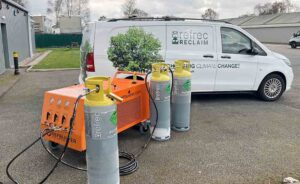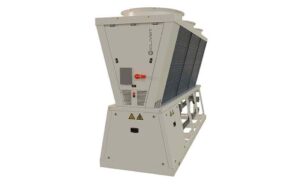Newcold sees cold storage growth
28th March 2018UK: Cold storage and distribution company NewCold UK is looking at possibilities for a new site to accommodate an expected increase in UK market activity post-Brexit.
Writing on the company’s website, NewCold country director Jon Miles, predicts that the movement of goods from central European hubs into the UK will become more complex after Brexit, as a result of the likelihood that the UK will leave the customs union.
“Currently, it is possible for a food producer to store product in a warehouse close to the coast in Belgium or France and deliver directly into UK distribution centres within acceptable lead times,” he says.
Jon Miles refers to a recent study by Imperial College London that indicated that even an additional two-minute stop at customs checkpoints could lead to the final 40 miles of the journey to the Channel Tunnel taking five hours. “The time and risk associated with these increased journey times will mean that the most obvious solution is to store the products closer to the market in the UK,” he maintains.
NewCold has already bolstered its UK deep-frozen storage and handling capability with the addition of 600,000m³ of fully-automated deep-frozen capacity to its Wakefield site and expects to be fully operational in April.
“Frozen food handling in the UK is already in peak demand,” adds Jon “and we have developed the Wakefield facility in line with the projected long-term requirements of our key customers, and positive market outlook. Kantar World panel reported volume up by 2% in 2018, and this annual growth is expected to continue for at least the next five years.
“Phase two of the Wakefield site expansion lifts our capacity to 143,000 pallets but even so, we expect to be 70% full by June 2018. Add this to the increase in storage demand which is likely to be caused by Brexit and it is clear to see why we need to make provision for an additional UK facility.” The facility will eventually handle 3,000,000 pallets annually at -23ºC.
The storage plant is fully automated to ensure cold chain integrity, and minimal handling helps to eliminate temperature fluctuations. For example, when the doors of a trailer open they do so into the frozen environment so that there is no risk of the product being exposed to ambient air. In addition, the dispatch bay is deep-frozen, whereby many conventional stores have only chilled bays.







